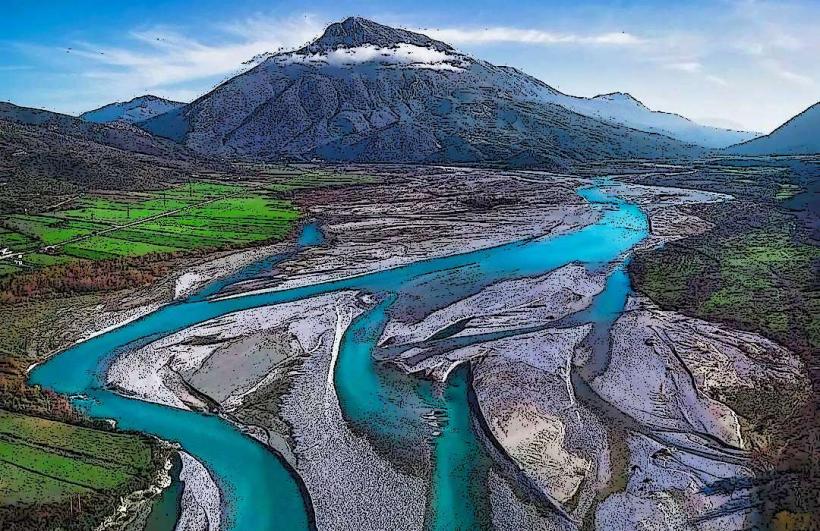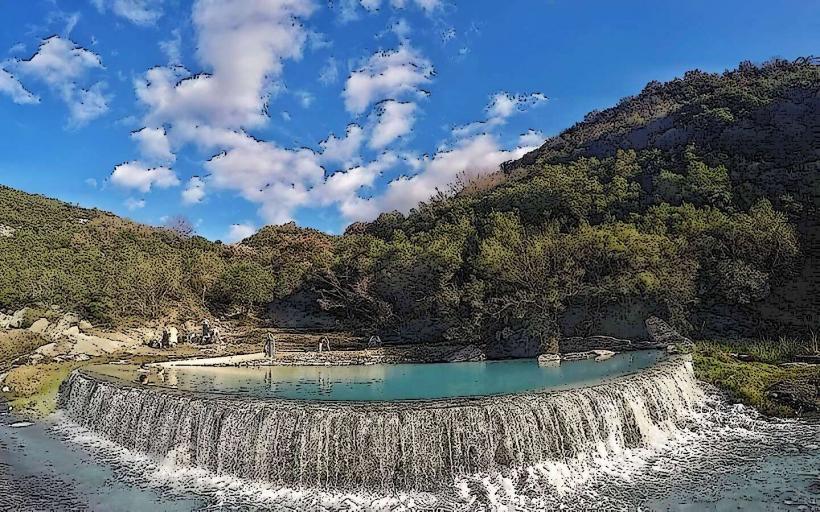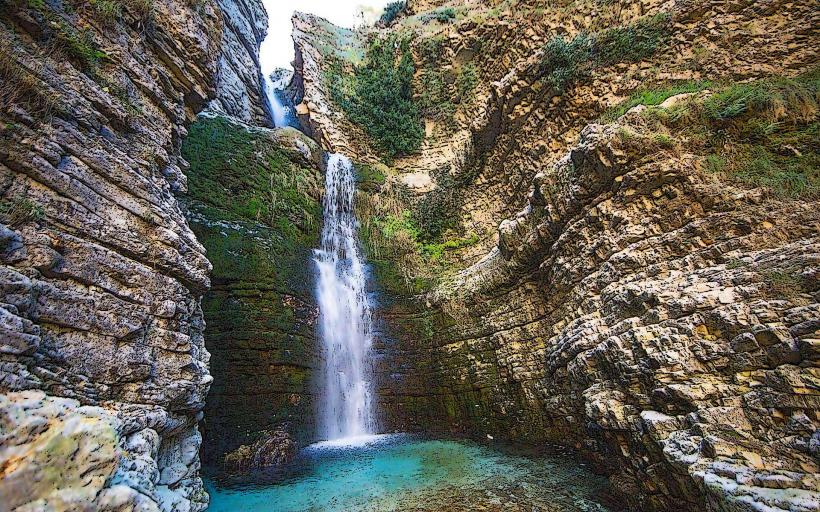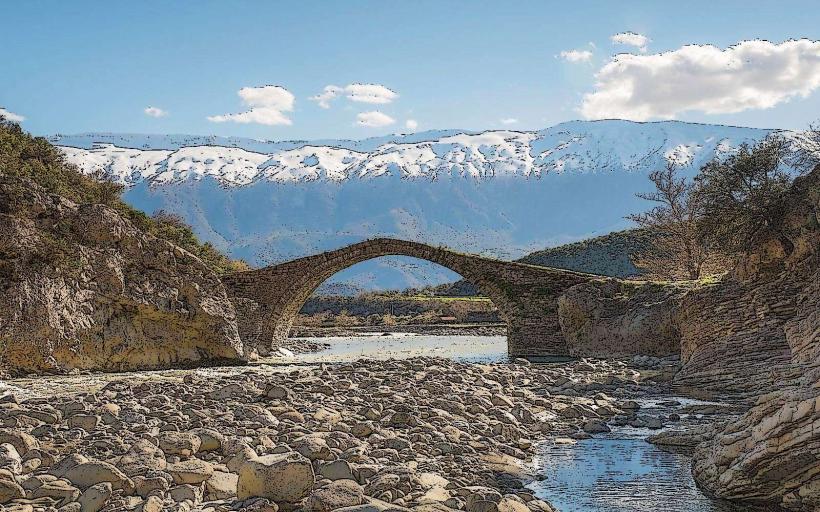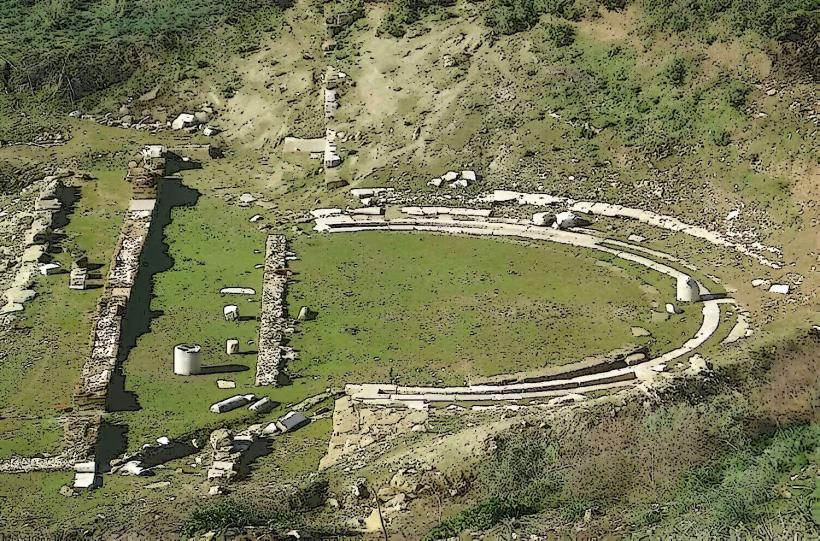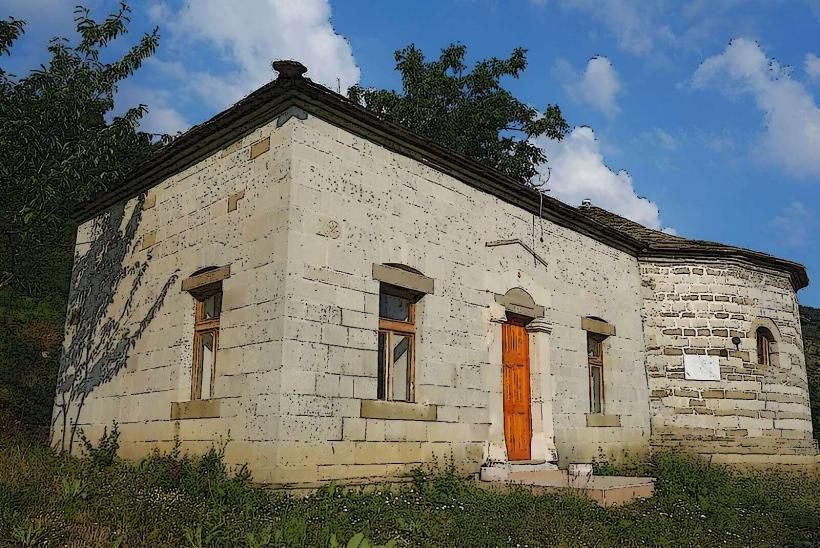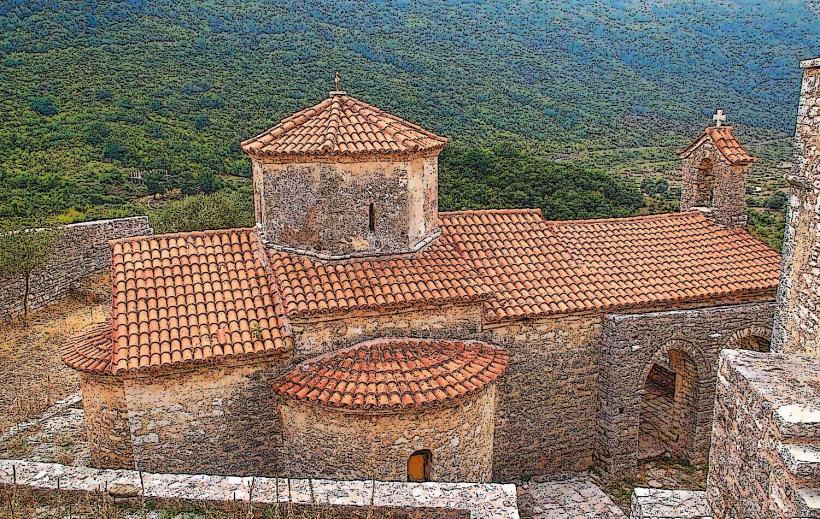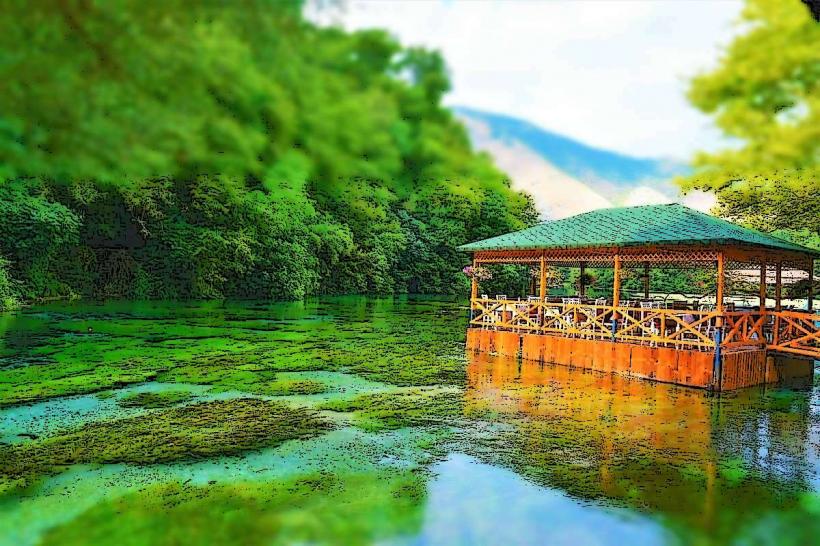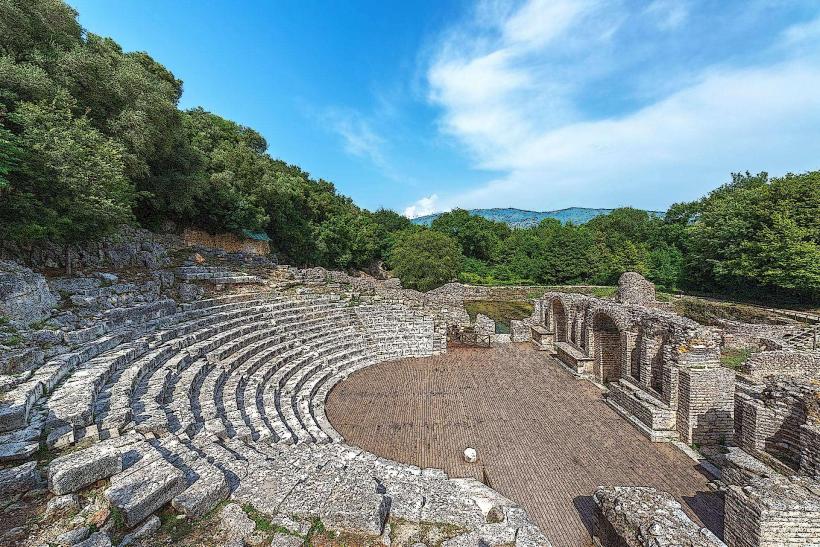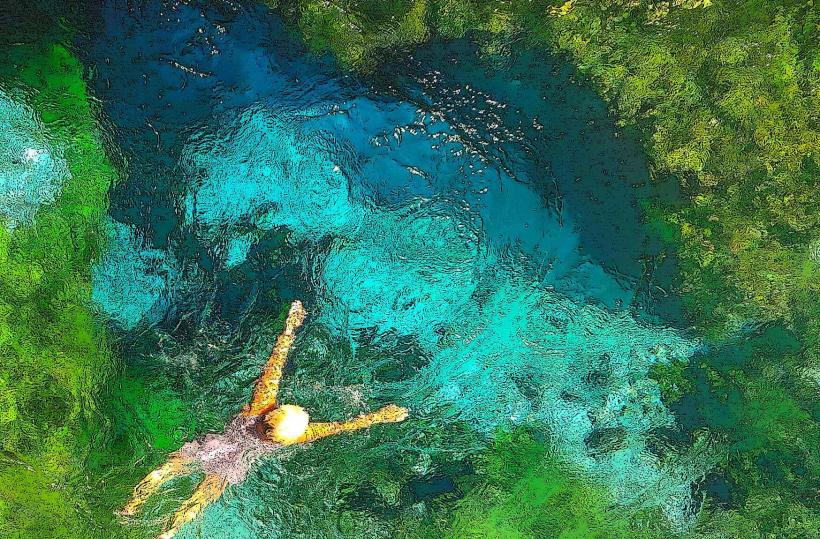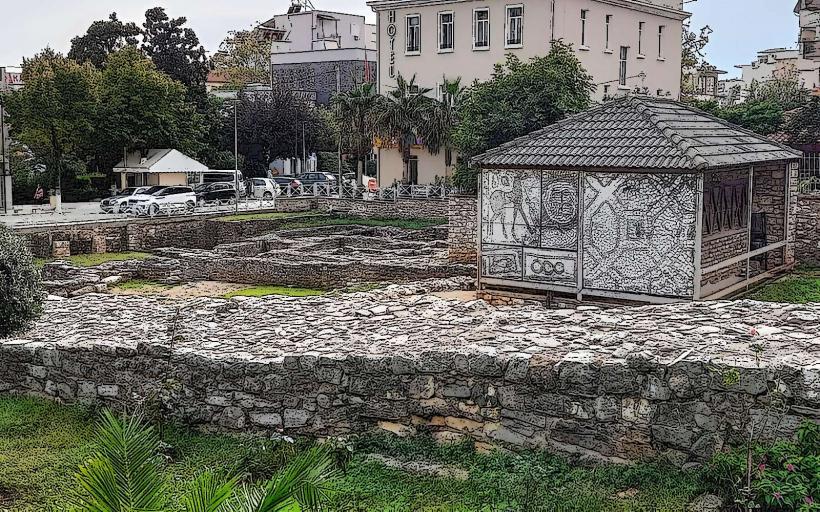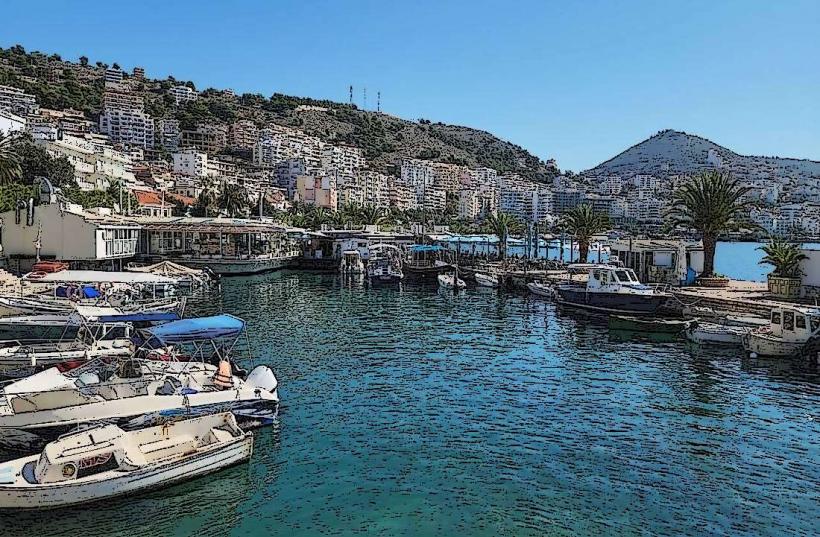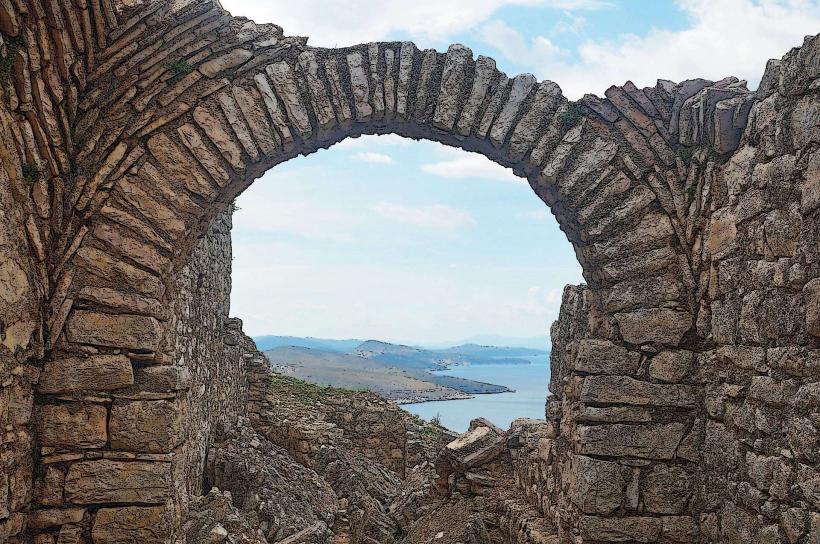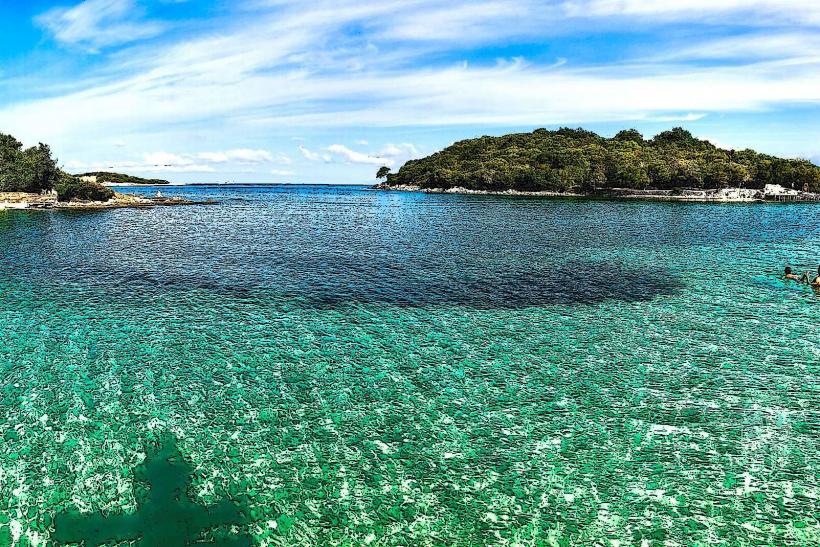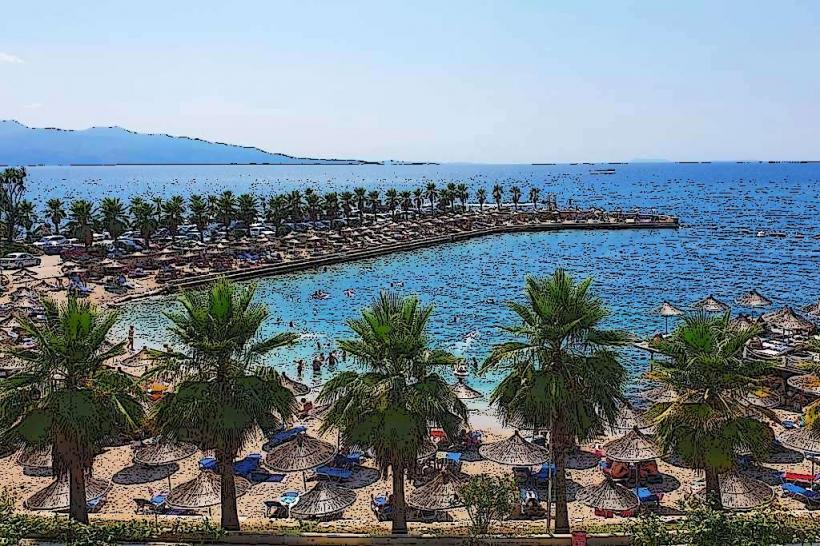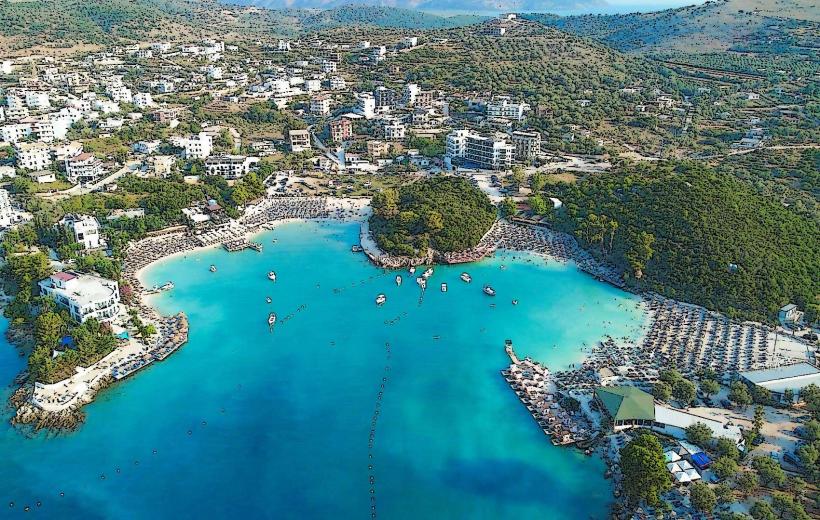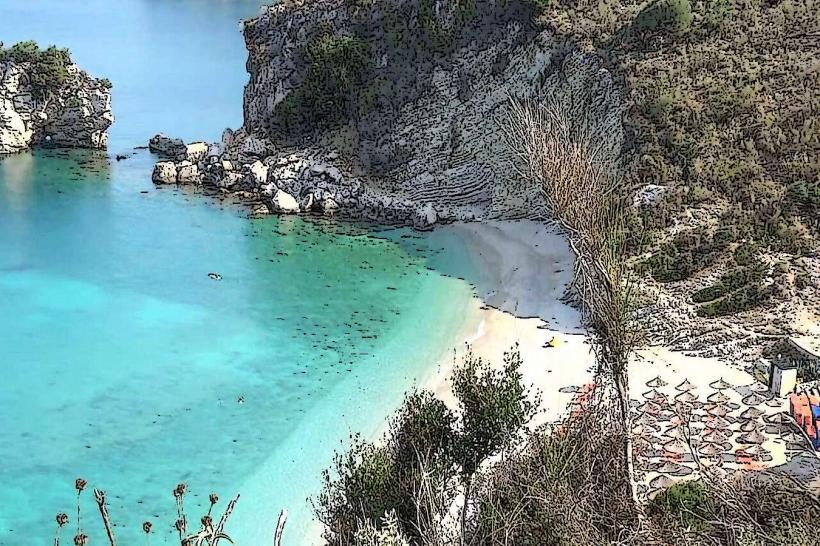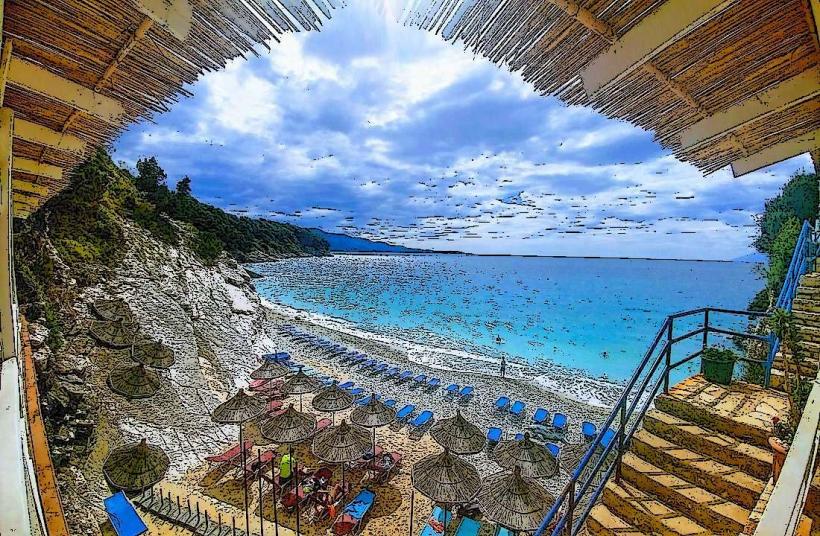Information
Landmark: Ali Pasha Tepelena CastleCity: Sarande
Country: Albania
Continent: Europe
Ali Pasha Tepelena Castle (also known as Tepelena Castle) is a historic fortress located in the town of Tepelena, in the southern part of Albania. The castle is deeply connected to Ali Pasha of Tepelena, one of the most famous and powerful figures in Albanian and Ottoman history. Ali Pasha was a prominent Ottoman ruler who governed much of the region in the early 19th century, and the castle is one of the key landmarks associated with his rule.
Geographical Location
- Location: The castle is situated on a hilltop overlooking the Vjosa River in the town of Tepelena, which lies in the Gjirokastër District in southern Albania. The elevated position of the castle offers breathtaking views of the surrounding landscapes, including the Vjosa Valley, the Pindus Mountains, and the river itself.
- Proximity: Tepelena is around 30 kilometers (19 miles) north of Gjirokastër and about 150 kilometers (93 miles) south of Tirana, making the castle relatively accessible for visitors traveling within Albania.
Historical Significance
Built in Antiquity: The origins of the Tepelena Castle date back to Antiquity, and the site has been used for defensive purposes for many centuries. The castle was likely constructed in the Byzantine period or earlier, with later modifications and expansions during the Ottoman era.
Ali Pasha of Tepelena: The castle is most famous for its association with Ali Pasha, the Ottoman Pasha who ruled the region during the late 18th and early 19th centuries. Ali Pasha was born in Tepelena in 1741 and rose to prominence through his military and political prowess. He controlled a vast territory that included parts of modern-day Albania, Greece, and Turkey.
- Construction and Reconstruction: While the original castle was built by earlier rulers, Ali Pasha made significant renovations and fortifications during his reign. He used the castle as one of his administrative centers and a stronghold to maintain control over the region. Under Ali Pasha's leadership, the castle was reinforced to serve as both a military base and a symbol of his power.
- Symbol of Power: The castle served as a key military and administrative hub for Ali Pasha, who was known for his independent rule and his defiance against the central Ottoman government. His control over the region was marked by political intrigues, alliances, and warfare with both the Ottomans and European powers.
Fall of Ali Pasha: In 1820, Ali Pasha's independence from the Ottoman Empire was challenged, and after a prolonged siege, he was betrayed and captured. Ali Pasha was ultimately executed by the Ottomans, marking the end of his reign and his association with the castle.
Architecture and Features
Fortifications: The castle is built with thick stone walls and watchtowers that provide a strong defensive position. Its strategic location on a hill made it a difficult target for enemies. The architecture of the castle is typical of Ottoman-era fortresses, with a focus on military functionality.
Inner Structures: Inside the castle, there are remnants of various buildings, including barracks, storage rooms, and living quarters. The most notable feature of the castle is its large courtyard, which was likely used for gatherings and military activities.
Defensive Walls and Gates: The castle's strong defensive walls are complemented by an entrance gate that still stands today. The outer walls are relatively well-preserved, while the inner structures have deteriorated over time due to weather and neglect.
Current State and Tourism
Tourism: Today, Ali Pasha Tepelena Castle is a popular tourist attraction. The castle's strategic location offers stunning views of the surrounding Vjosa River and the valley below, making it a great spot for photography and sightseeing. Visitors can explore the ruins, climb to the top of the walls for panoramic views, and learn about the region's history.
Preservation: The castle is not fully restored, and much of the structure remains in a state of ruin. However, it still retains its historical significance and provides a glimpse into the past. Efforts to preserve and protect the site continue, and it has been recognized as an important historical monument in Albania.
Nearby Attractions: The town of Tepelena itself is a small, charming place with cultural significance. Nearby, visitors can also explore the Vjosa River, which is one of the last free-flowing rivers in Europe, and the Gjirokastër region, which is home to other UNESCO World Heritage Sites, such as the Gjirokastër Castle.
Conclusion
The Ali Pasha Tepelena Castle is a significant historical site in Albania, offering both a glimpse into the turbulent past of the region and an opportunity to appreciate the breathtaking natural beauty that surrounds it. Whether you're interested in the history of Ali Pasha, the Ottoman military architecture, or simply looking for a scenic spot to explore, the castle remains a key cultural landmark in southern Albania.

